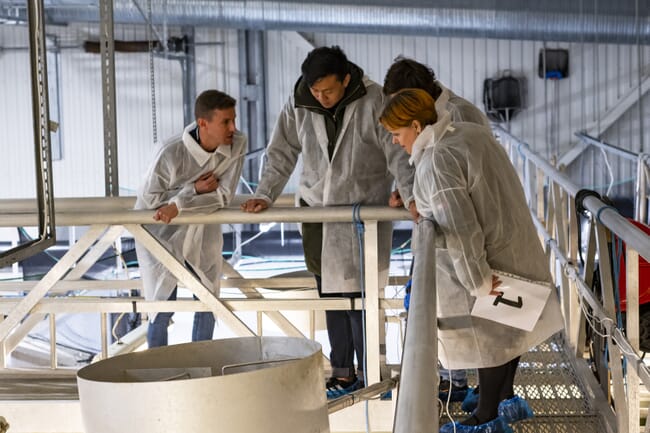
© Terje Aamodt/Nofima
The Norwegian Institute of Food, Fisheries and Aquaculture Research (Nofima) has announced details for its upcoming biannual conference, which will cover the challenges and breakthroughs of closed system smolt production.
The conference, which will take place in Sunndasløra from 16-17 October, will be opened by the Norwegian Minister of Fisheries and Ocean Policy, Marianne Sivertsen Næss, who will be followed up by industry leaders with their insight into what is required to succeed with smolt production.
New to the conference lineup this year is a debate on how policy, industry, and research can best cooperate to ensure reduced salmon mortality in the sea grow-out phase of the farm production cycle. Additionally, this year’s event will feature, for the first time, a separate session on feed and feeding in RAS, and the importance of water quality and fish health.
Bente Ruyter, a senior Nofima scientist and presenter in this section said, in a press release: “In our research, we compare two feeds in flow-through systems and RAS, and then we can see interesting interaction effects. As far as I know, this is the first time someone has looked at how omega-3 affects the health of salmon in two different production systems."
During the event, Nofima will host three scientists from USA’s Freshwater Institute - a longstanding collaborative partner in the area of RAS salmon production research. They will present on a broad range of topics including novel precision aquaculture technologies, the use of biomonitors to assess salmon stress, and water quality management and optimisation in recirculation systems.
“Among other things, our research utilises computer vision and artificial intelligence to increase operational efficiency in RAS facilities, and we very much look forward to presenting our latest precision aquaculture innovations to the participants at the conference at Sunndalsøra” commented Chris Good, director of research at The Freshwater Institute.
Finally, the conference will explore the possibility that current RAS systems are operated too intensively, with Nofima’s Anja Striberny presenting data from different temperature regimes in RAS and flow-through systems which may provide answers to this important question.




